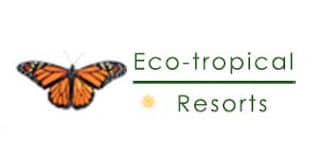Three tips for a low waste holiday
When you take a holiday, make it a low waste holiday. It’s usually your time each year to seek a little luxury and comfort. However, some of the ways that we choose to indulge on our time off can produce a lot of harmful waste. Luckily, by making more mindful choices, it’s possible to have a relaxing break without negatively impacting the environment. In this guide, we discuss a few top tips for a low waste holiday.
Purchase items you’ll use again
In the lead up to a holiday, we tend to stock up on items that we think we’ll need. Items that actually, we may only use once. Pool inflatables, towels and beach balls are purchased for the holiday. These holiday items tend to be left behind at our destination at the end of the holiday. We don’t need them back home. Or, if we do manage to fit them into our suitcases, they arrive home only to collect dust and eventually be thrown away.
It’s a good idea to plan ahead of time when thinking about the items that you’ll need for your holiday. This way, you’ll have the chance to make well-informed decisions, and avoid impulse buys that may end up as waste. Perhaps you’ll stick to investing in items that you will use again, year after year – or, you may choose to purchase items that are made from sustainable materials, and won’t cause as much problematic waste if they are disposed of.
Similarly, you’ll want to avoid purchasing souvenirs when on holiday that are made from environmentally harmful materials, such as plastic. Usually, these small gifts get forgotten and thrown out pretty swiftly by the receiver. Not to mention, in order to transport them home in the first place, we often have to throw something else away to make room in our suitcase. If you do need to purchase a souvenir, consider shopping for ones that are more eco-friendly, in order to reduce the potential for harmful waste.
Adapt your eating habits
It’s easy to give into the temptation of convenient snacks when you’re on holiday. Unfortunately, these treats often come in the kind of plastic packaging that is harmful for the environment when thrown away – for example, crêpes in styrofoam cones, or plastic straws in your beachside cocktails. For this reason, it’s best to pack your own food into reusable containers where you can – or, stick to holiday foods that you can purchase without packaging or cutlery, such as watermelon or ice cream in edible cones.
Waste from animal products is generally more problematic for the environment than plant-based waste, so it’s good to eat vegan if you can while abroad. In fact, for many cultures, tasty plant-based dishes are a staple cuisine, and well worth a try when travelling.
Consider where you’ll stay
Staying in a fancy hotel when you’re on holiday may feel luxurious, but the reality of having our every whim taken care of is that it often produces a lot of waste. For this reason, it’s best to avoid staying anywhere that may offer small toiletries and other gifts that you don’t necessarily need. If you do choose to stay at a hotel, you can ask that these small favors be saved for other guests – similarly, you can request that your towels and bedding be changed less frequently, in order to prevent unnecessary water waste.
Ideally, to keep your waste to a minimum, you’ll want to research eco-friendly places to stay at your destination. To actually find a sustainable lodging you can search this site, Eco-tropicalresorts.com. Look on the far right where it says “SEARCH HOTELS/TOURS BY AREA”.
In conclusion
Committing to a low waste holiday is easier than it sounds, and often starts before you’ve even left home. By making small, mindful choices, your holiday can be as opulent and indulgent as you wish. And yet, while still being kind to the environment.
This is a guest post from LoveHolidays.




